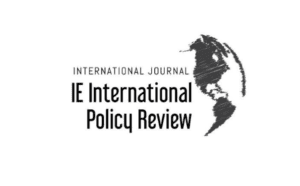Have you ever sat in a class and realised that you’re completely lost? You zoned out long ago, don’t understand what the professor is saying, and are not even sure why you should care anymore. Disengagement is a growing problem in universities. Research suggests that students are increasingly unwilling to study independently and are participating in class less, all while attendance rates fall. This is a big problem for universities. There is evidence that feeling lost and losing motivation (emotional disengagement) can contribute to disappointing academic performance in second-year students. As a result, it’s very important for universities such as IE to work to reverse the trend and re-engage students.
Disengagement has many causes. The research points to three key contributors. Firstly, a sense of incompetence. When students constantly struggle with a class, they may think that it’s just too difficult for them to understand. They can get frustrated and dispirited before giving up. Secondly, a lack of autonomy can lead to falling motivation. Students who feel like they have no say in their learning are less likely to be engaged, especially if they feel classes aren’t relevant to them. Finally, a lack of belonging can also predict disengagement. This article focuses on how personalization could be used to address the first two causes of disengagement.
Personalising learning can help close gaps in understanding. Students at IE come from various educational systems, which means that they’ll often be coming into class with different base levels of skills and knowledge about a topic. Personalised learning can ensure that students with lower levels of skills and knowledge catch up through targeted instruction. Currently, additional help at IE is usually up to the student. Some professors teach extra catch-up classes or make themselves available during office hours. The problem with this is two-fold. Firstly, asking for help can be too embarrassing for some students, as they fear they’ll be seen as incompetent. Secondly, students often believe they understand something when they don’t. For example, they might have seen their professor solving a maths problem in class and understood all the steps at the time. When they’re revising and reading through it, they’ll still understand all the steps and the problem will even feel familiar, reassuring the student that they know the material well and don’t have to spend too much time on it. However, when they have to do a similar problem in the exam they might still forget a step.
As a result, it’s important for teachers to proactively help struggling students while assessing for themselves what they actually know. This depends on having a lot of data points on students. There are already classes, such as Administrative Law and Legal Philosophy, where quizzes are frequently assigned. Professors could use quizzes like these to analyse which areas particular students are struggling with, either manually or with the help of AI. This information could be used to craft personalised asynchronous review sessions. For example, students could be given materials from the topic they struggled with and have to read and apply the content in materials. A program like this could quickly identify gaps in knowledge and fill them before they grow too wide. This would reduce students’ feelings of incompetence, and hence decrease disengagement.
A lack of autonomy is also reducing engagement at IE. A lot of students in my class feel they have very little control and ownership over their learning. Furthermore, a significant number don’t think the content of the classes is relevant to them, either from a personal or professional perspective. To increase engagement, we want more choice over what case studies, projects, and essays we do. I’ll give two examples of how the current situation could be improved.
The first-year Writing Skills class required an essay as one of its main deliverables. We couldn’t choose the topic, despite the fact that we were mostly being evaluated on skills such as paragraph structure and the ability to make correct citations rather than the content itself. The assignment would have been more engaging if we could have chosen our own topics, instead of only that suggested by the professor. Similarly, Entrepreneurship has a group project as one of its main deliverables. Each group completes a different project, but these are randomly assigned, leading to some people being given a project they don’t really care about. Being able to choose or define our own projects would prevent this problem.
Some students wanted personalization to go further. As they progress through their degrees, students’ interests and goals are likely to change. This is especially clear in my degree, Philosophy, Politics, Law, and Economics (PPLE). When we were first years, many of us had no idea what we wanted to do. This is no longer the case just a year and a half later. Most students have realised that they have a strong interest in one of the subjects, or came to a conclusion they are not passionate about another. Being able to get a dual degree such as PPLE and Economics, or to drop a subject to get a PLE or PPE degree instead, could help students better tailor their academic paths.
Higher education is suffering a crisis of engagement, and IE University is no exception. If it wants to help students reach their full potential, it must think of how it can tackle feelings of incompetence (and learning gaps), as well as a lack of autonomy in students, and promote belonging. Working to personalise classes could help struggling students keep up and restore their sense of competence. Additionally, providing more choice and customization both within individual classes and on a curriculum-wide level could restore a sense of autonomy. While it wouldn’t eradicate the problem, more personalised learning is key to reducing student disengagement.
Featured image: Pixabay






